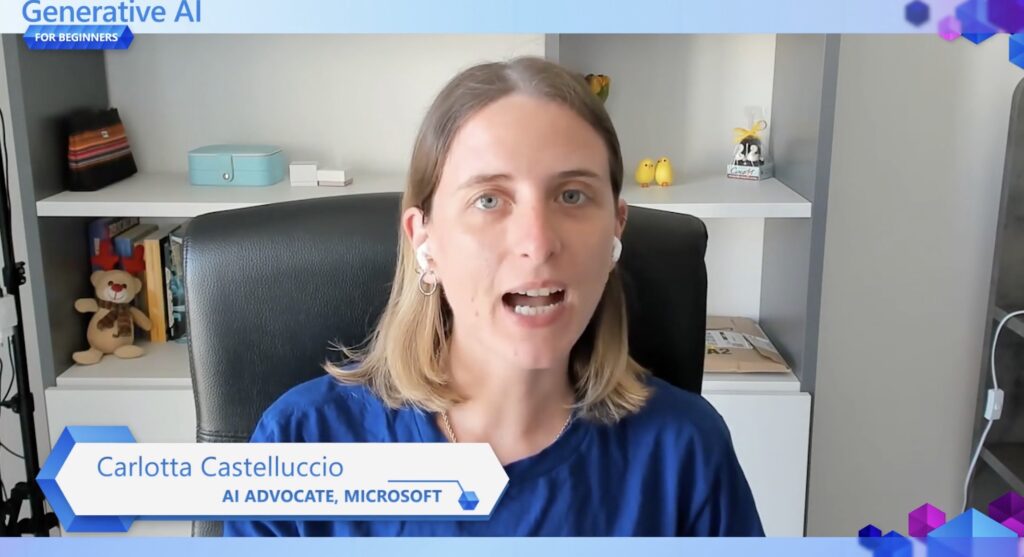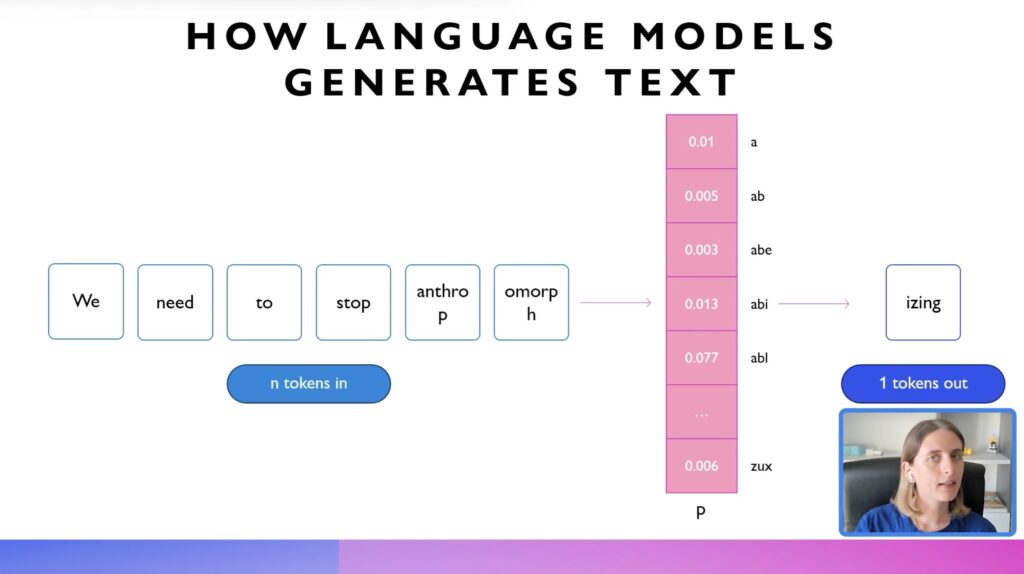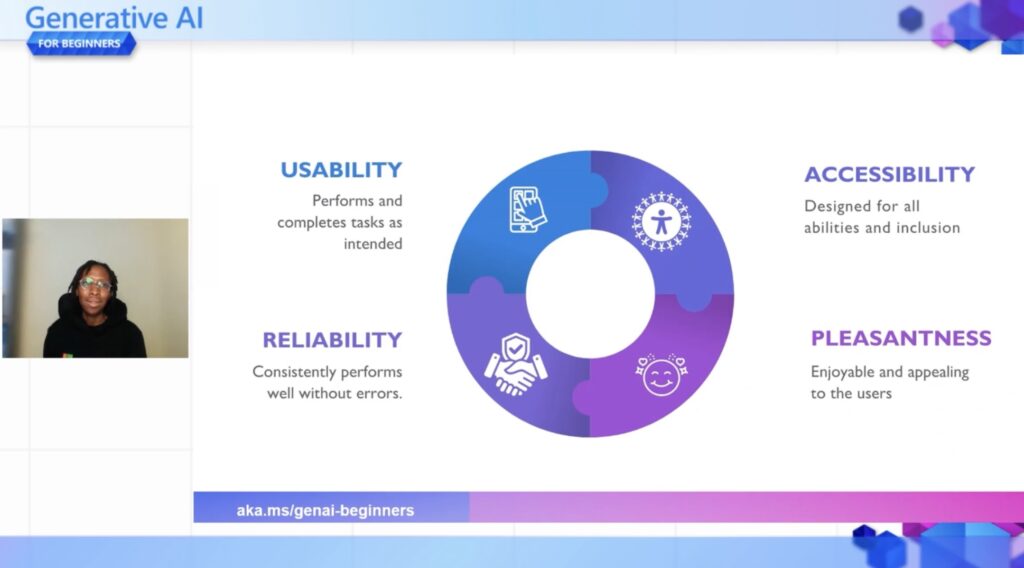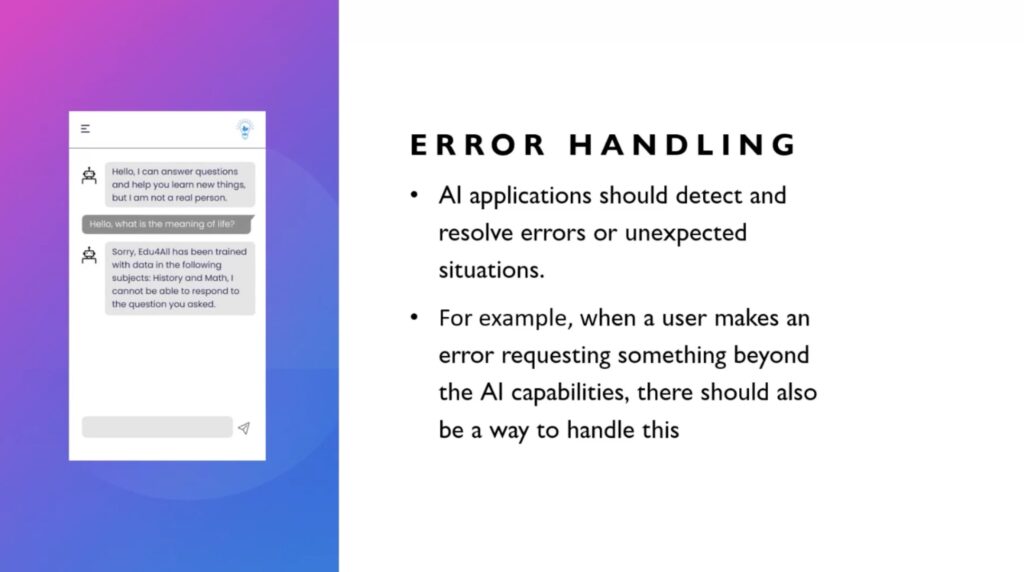Ideal for Beginners, Developers, and AI Enthusiasts Looking to Build a Solid Foundation
- Comprehensive Learning Path: From the basics of Generative AI and large language models (LLMs) to advanced topics like fine-tuning and AI agents, this 18-episode series covers every aspect of building AI-driven applications.
- Practical, Hands-On Guidance: Each episode provides step-by-step tutorials on creating real-world applications, whether it’s text generation, image creation, or integrating AI into low-code platforms.
- Focus on Responsibility and Security: Beyond technical skills, the series emphasizes ethical AI use, user trust, and securing applications against potential risks.

Microsoft has just dropped a game-changer for anyone curious about artificial intelligence with their new 18-episode series titled “Generative AI for Beginners.” Whether you’re a complete novice, a seasoned developer, or an AI enthusiast, this series promises to equip you with the knowledge and tools to navigate the rapidly evolving world of generative AI. Hosted by a lineup of expert instructors like Carlotta Castelluccio, Chris Noring, and Nitya Narasimhan, the series dives deep into the mechanics of large language models (LLMs) and their transformative potential across industries. With a strong focus on practical application and responsible innovation, Microsoft has crafted a learning journey that’s as engaging as it is informative.
The series kicks off with an introduction to Generative AI and LLMs in Episode 1, where Carlotta Castelluccio breaks down their inner workings and highlights their revolutionary impact, particularly in education. This sets the stage for Episode 2, where Carlotta teams up with Pablo Lopes to explore various types of LLMs, their unique use cases, and how businesses can tap into their potential. These foundational episodes ensure that even those new to the field can grasp the significance of AI technologies and envision their applications in real-world scenarios.
As the series progresses, it pivots to the critical topic of responsibility in AI. Episode 3 delves into why responsible AI is non-negotiable for generative applications, offering actionable steps to ensure outputs are fair and non-harmful. This ethical grounding is a recurring theme, revisited later in Episode 12, where Bethany Jepchumba discusses designing user experiences for AI applications with an emphasis on trust and transparency. Understanding user needs and fostering collaboration through thoughtful design are presented as key pillars of responsible AI deployment.

For those eager to get hands-on, the series doesn’t disappoint. Episodes 4 and 5, led by Nitya Narasimhan and Chris Noring respectively, tackle prompt engineering—a crucial skill for optimizing AI responses. From crafting effective prompts to iterating on advanced techniques with real-world examples, these episodes empower learners to harness the full potential of generative models. The practical focus continues with Episode 6, which walks through building text generation applications using OpenAI, adjusting parameters like temperature and tokens for tailored outputs, and Episode 7, where Jasmine Greenaway demonstrates how to integrate AI-powered chat applications into existing systems with customization and monitoring strategies.
The scope broadens further with specialized applications. In Episode 8, Dave Glover explores building semantic search apps using vector embeddings, showcasing a use case for an education startup’s video library. Episode 9, featuring Chris Noring and Pablo Lopes, dives into image generation with models like DALL-E and Midjourney, guiding viewers through the creation of an image-generation app from text descriptions. For those with limited coding experience, Episode 10 is a standout—Someleze Diko introduces low-code development with Microsoft Power Platform, leveraging tools like Copilot and AI Builder to create AI-powered workflows without deep technical expertise.
Integration and security take center stage in later episodes. Episode 11, led by Korey Stegared-Pace, introduces function calling to extend AI capabilities by integrating external applications with LLMs. Episode 13 builds on this by addressing security considerations, outlining common risks to generative AI systems and offering best practices to safeguard them. Meanwhile, Episode 14, with Pablo Lopes, unpacks the generative AI application lifecycle, introducing the shift from traditional ML Ops to LLM Ops, and providing frameworks for continuous development, deployment, and improvement of AI solutions.

Advanced learners will find plenty to sink their teeth into as well. Episode 15, hosted by Bethany Jepchumba, explores Retrieval Augmented Generation (RAG) and vector databases, teaching how to “ground” LLMs with custom data for more accurate outputs. Episode 16 shifts focus to open-source models, with Korey Stegared-Pace discussing their benefits over proprietary options and how to access and fine-tune them via platforms like Hugging Face or Azure AI Studio. The concept of AI agents is introduced in Episode 17, where Korey explains how LLMs can take actions through tools and frameworks, comparing different agent-based approaches. Finally, Episode 18 wraps up the series with Nitya Narasimhan guiding viewers through fine-tuning pre-trained language models for specific tasks, while candidly addressing the limitations of this process.

What makes “Generative AI for Beginners” truly stand out is its holistic approach. It’s not just about coding or model training; it’s about understanding the broader implications of AI in society. The series balances technical depth with ethical considerations, ensuring that learners are not only skilled but also conscientious in their application of AI. Whether you’re looking to build a career in AI, integrate generative tools into your business, or simply satisfy your curiosity, this Microsoft series is an invaluable resource. Each episode builds on the last, creating a cohesive narrative that transforms complex concepts into accessible, actionable knowledge.
